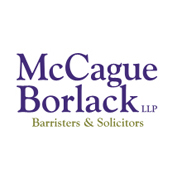In Actava TV Inc. v. Matvil Corp, released on February 19, 2021, the Ontario Court of Appeal clarified the law on letters of request for third-party production.
The crux of the dispute in this case centred around a 'letter of request'. A letter of request, sometimes called a letter rogatory, "is the medium whereby one country, [...] seeks foreign judicial assistance that allows for the taking of evidence for use in legal proceedings[.]"1 In this case, the U.S. District Court, Southern District of New York, issued a letter to the Ontario Superior Court of Justice. At its core, the letter is merely a request, and as such, must be endorsed or made enforceable by the recipient jurisdiction.
The Factual Background
The background to this case is somewhat convoluted. Essentially, the key parties, Actava and Matvil, were in the business of streaming Russian language TV to customers in North America. Beginning in 2016, a saga of lawsuits was commenced in the U.S. wherein the Russian broadcasters were fighting with various parties over licensing rights for their programming.
The third lawsuit in this saga arose on July 23, 2018. In this litigation, Actava sued the Russian broadcasters and a competitor streaming service. Relevantly, Actava alleged that the defendants had prevented it from fulfilling a referral agreement that it had with Matvil, in addition to pressuring Matvil to terminate that agreement. Matvil was never made a party to this litigation.
In order to calculate Actava's alleged damages in this third action, its expert opined that it was necessary to compare Actava's revenue growth against the growth of its competitors. The difficulty is that Actava only had two legal competitors, one being Matvil. Actava's theory was that absent these alleged interferences, its revenue would have grown similarly to Matvil's.2
Actava was unsuccessful in getting Matvil's records informally, so it moved before the New York court for a letter of request. The proceeding occurred summarily and in writing. Matvil did not participate and was not given notice or motion materials. The U.S. court granted Actava the letter which encompassed Matvil's work product, operating expenses, licensing fees and more; all of which were private, proprietary, and not publicly available.3
Letter in hand, Actava brought an application to the Ontario Superior Court of Justice to enforce the letter. Matvil contested the application, arguing that it had a legitimate interest in protecting the information sought. The Superior Court judge ruled in favour of Actava and granted their order.
Specifically, the judge examined the six factors that evidence 'must' establish... |
Application Judge's Reasons
The Superior Court judge was satisfied that the statutory preconditions for enforcing the letter had been met and afforded the U.S. court's decision considerable deference. Specifically, the judge examined the six factors that evidence 'must' establish "[b]efore giving effect to letters rogatory" from the Ontario Court of Appeal's 2006 decision in Presbyterian Church of Sudan v. Taylor.4 Those factors are:
- the evidence sought is relevant;
- the evidence sought is necessary for trial and will be adduced at trial, if admissible;
- the evidence is not otherwise obtainable;
- the order sought is not contrary to public policy;
- the documents sought are identified with reasonable specificity;
- the order sought is not unduly burdensome, having in mind what the relevant witnesses would be required to do, and produce, were the action to be tried here.
Because the judge felt that these factors were met, they granted Actava's request.
The Appeal
Matvil appealed the order to the Ontario Court of Appeal on numerous grounds. The Ontario Court of Appeal agreed with Matvil and allowed the appeal with costs. The decision was written by Justice of Appeal Pepall and was unanimously adopted by the panel.
First, Justice Pepall observed that the decision to grant enforcement is discretionary and a court may refuse to enforce a letter even if the statutory conditions have been met.5
Justice Pepall then examined the Supreme Court of Canada's leading case, R v Zingre.6 From it, the Justice determined that "three elements were said to animate the enforcement of [a letter of request]: comity, public policy of the jurisdiction to which the request is directed, and absence of prejudice to the sovereignty or the citizens of that jurisdiction."7 Justice Pepall then examined the Ontario Court of Appeal's 2007 decision in Connecticut Retirement Plans v Buchan.8 In that case, it was held that in addition to the six factors in Presbyterian Church, the court is required to balance two broad considerations:
- the impact on Canadian sovereignty; and
- whether justice requires the taking of commission evidence.9
One interesting aspect of Justice Pepall's reasons involved a discussion of the distinctions between discovery in the U.S. and Ontario. Justice Pepall noted that "while the U.S. and Canada have somewhat comparable justice systems, the rules relating to discovery are significantly dissimilar."10 Justice Pepall further observed that in the U.S., "if there is 'any possibility the information sought may be relevant' ... it is discoverable", whereas in Ontario, evidence "must be relevant to matters actually in issue".11
After weighing the various factors discussed above, Justice Pepall allowed the appeal and the remaining Justices agreed.
Conclusion
In this case, the Court of Appeal has made it clear that Ontario courts will not enforce letters of request as a matter of routine course. Rather, courts will be guided by the principles identified above. Significantly, the Court of Appeal emphasized the discretionary nature of these requests and indicated that each case will turn on its own facts. Furthermore, Justice Pepall's discussion of the different evidentiary laws in the U.S. versus Ontario was insightful, as it clarifies that what is discoverable in the U.S. will not necessarily be discoverable in Ontario.
- Actava, at para 39.
- An interesting point is that Actava had no idea whether their competitors' revenue had actually grown.
- Actava, at para 19.
- 215 O.A.C. 140 at para 20.
- Actava, at para 40.
- [1981] 2 SCR 392.
- Actava, at para 42.
- 2007 ONCA 462.
- Actava, at para 51.
- Actava, at para 54 [Emphasis added].
- Actava, at para 55.


